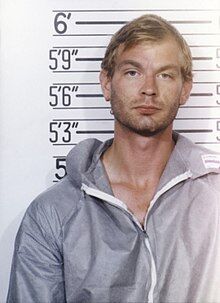Law and Crime
Serial Killer TV Shows Are Escapism for True Crime Fans
The danger is exciting but not real.
Posted March 20, 2022 Reviewed by Jessica Schrader
Key points
- Experts believe that serial killer TV shows offer a jolt of adrenaline and escape from the monotony of daily life for many people.
- Serial killer stories may be for adults what monster movies are for children—that is, scary fun.
- One may have a cathartic experience by facing horror safely in a controlled setting.

The tremendous proliferation of true crime programming on cable TV and streaming platforms over the last few years has given a spotlight to serial killers, especially notorious ones like Ted Bundy, Jeffery Dahmer, Richard Ramirez, Dennis Rader, and David Berkowitz. As such, serial killer content is providing a seemingly endless source of escapist entertainment for millions of people.
A number of experts believe that serial killer stories provide a jolt of adrenaline and escape from the monotony of daily life for many people. Dr. Harold Schechter, an award-winning true crime author of books such as Depraved: The Shocking True Story of America's First Serial Killer (H.H. Holmes), explained that “serial killer mania is an American version of a universal human fascination with gruesome, grizzly, macabre crime.”
Schechter further explained that serial killer stories offer an escape from the tedium of everyday life. He said, “Most of us lead very controlled, responsible, circumscribed lives. We follow the rules, so on and so forth, but we do have other aspects of ourselves that need a little madness. Serial killers provide that.”
Veteran crime reporter Jeff Kamen offered similar insights when I asked him to describe the appeal of serial killer stories to the public. He said: "Serial killers are scary entertainment. The stuff of grim fantasy come to ugly reality and while frightening the public, true tales of serial killers also divert people from the desperately mundane and boring, from the demanding and unnerving, from the awful, unrelenting, banality of life."
I believe that serial killer TV shows are for adults what monster movies are for children—that is, scary fun. Through my research, many self-proclaimed serial killer fans have told me exactly that. For example, a former student of mine said, “I love serial killers now the same way I loved monsters as a kid. I secretly want the monster to win.”
The late, legendary FBI criminal profiler Roy Hazelwood concurred with this perspective when he said, “You ask me why people like serial killers. For the same reason they like monster movies. They love to be scared. It’s fun.”
Adding the insights of a respected journalist, Jeff Kamen said that the reason people like to follow serial killer stories in the news is the same reason they like to watch horror movies. Kamen explained the similar appeal of serial killers and horror movies to the public when he said:
"They both scare the hell out of us but in a controlled setting. The key is we don’t get harmed. Actual real-life horror is always out of our direct control which is why some people literally are scared to death by the shock of real-life horror happening to them such as a home invasion robbery, a rape, a mugging."
Kamen’s observation that horror is pleasurable to people when it is presented in a controlled setting is powerful and it helps to explain the allure of serial killer stories to the general public. As long as serial killers are safely confined to the news and entertainment media, they are just scary fun.
Offering additional insights into how people deal with fear, Dr. Harold Schechter explained that some people like to collect the artifacts of murderers, including their personal items and mementos as a way to manage their anxieties. In the documentary film Collectors, he said, “Some people are afflicted with a lot of fears and this [colleting] is a way of confronting the fears directly and exerting some kind of control over them.”
Schechter noted that a few years ago, people were fanatically collecting limited edition serial killer trading cards. The hobby became highly controversial and received a lot of negative press. He said that many people thought it would “glorify serial killers.” He believes that the controversy was misguided and overblown by the media.
Schechter also explained the curious appeal of the trading cards to their collectors: "One of the impulses underlying that is an effort to have these frightening things lined up in some kind of orderly way and put in a box… It’s a way of managing anxieties… You’re turning it into a kind of game… you’re turning it into a play thing. It gives you control over fear. "
Schechter‘s comments reveal that some of the public’s fascination with serial killers is indeed linked to its own fear and need to control it. Likewise, my own research on this subject suggests that experiencing horror in a safe and non-lethal environment is very appealing, exciting, and serves the purpose of managing fear for many people.
Consider, for example, how one may have a cathartic experience by facing horror safely in a controlled setting such as a haunted house or roller coaster ride. Scary entertainment relieves you of your fear but you are never really in danger at all. I believe that collecting items such as serial killer trading cards allows the public to exercise its fears by getting close to the fire, so to speak, without getting burned.
Thus, as a source of popular culture entertainment, serial killer TV programming introduces the public to fear and horror but in a controlled environment where the threat is exciting but not real. It offers a thrilling form of escapism. Moreover, it’s just good, ghoulish fun.




